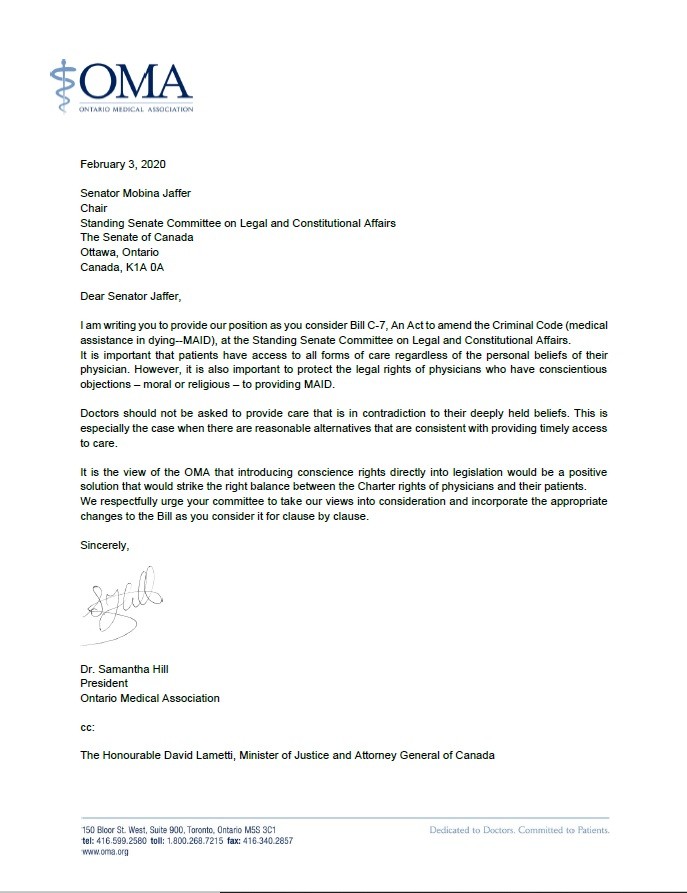Sean Murphy*
The Ontario Medical Association (OMA), representing over 31,000 Ontario physicians, has asked that protection of conscience provisions be included in a euthanasia/assisted suicide bill now before the Standing Senate Committee on Legal and Constitutional Affairs in Canada. The request is contained in a letter to the Chair of the committee.
Bill C-7 is the government’s proposed amendment to the current Criminal Code provisions concerning “medical assistance in dying” (euthanasia and assisted suicide provided by physicians and nurse practitioners. The current law was enacted as a result of a ruling by the Supreme Court of Canada that an absolute ban on euthanasia and assisted suicide was unconstitutional. Bill C-7 is the government’s response to a ruling by the Quebec Court of Appeal that it is unconstitutional to restrict euthanasia and assisted suicide to those at the end of life or whose death is “reasonably foreseeable.”
Bill C-7 formally repeals the requirement that natural death be “reasonably foreseeable,” vastly increasing the pool of potential euthanasia/assisted suicide candidates, particularly among disabled persons. It abolishes a ten day reflection period for those whose deaths are reasonably foreseeable and reduces the number of independent witnesses to a patient request from two to one. It will also permit the lethal injection of an approved candidate who has lost capacity if the candidate provides advance written authorization before losing capacity. While the bill explicitly excludes mental illness as grounds for the service and establishes different criteria for patients whose natural deaths are not reasonably foreseeable, the proposed amendments have reinforced concerns among practitioners who have objected to euthanasia and assisted suicide from the beginning. It seems reasonable to think that the proposals may also be causing uneasiness among practitioners who are not opposed to the services in principle.
